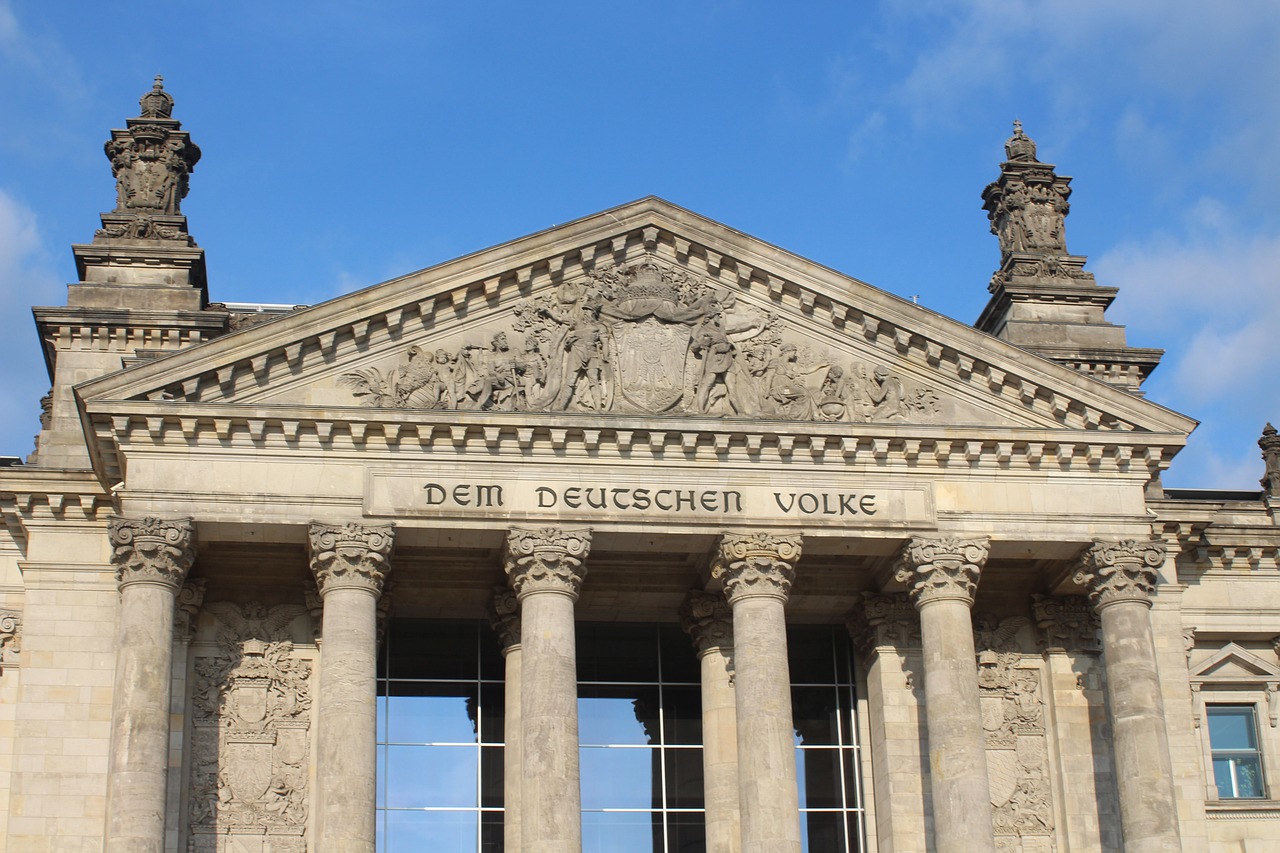Political Philosophy and Its Relevance in Modern Governance
In a world where political landscapes are constantly shifting, the relevance of political philosophy has never been more pronounced. This discipline, which delves into the fundamental questions of governance, justice, and ethics, serves as a guiding compass for leaders and citizens alike. Imagine navigating a vast ocean without a map—this is akin to attempting to govern without the insights provided by political philosophy. It offers the tools to understand not just the "how" of governance, but the "why" behind it.
The significance of political philosophy in contemporary governance lies in its ability to provide a framework for analyzing current political issues. It encourages us to think critically about the principles that underlie our democratic systems and the ethical implications of our political decisions. In an age where the lines between right and wrong can often seem blurred, political philosophy challenges us to engage with these complexities and seek clarity.
Moreover, political philosophy is not just an academic exercise; it actively shapes the policies and practices that govern our lives. For instance, the principles of justice and equality derived from philosophical inquiry can influence legislation, public policy, and even the way we engage with our fellow citizens. As we explore the foundational theories and key thinkers in this field, we will uncover how their ideas continue to resonate in our modern political discourse.
As we dive deeper into the realms of political thought, we will encounter the works of influential philosophers who have laid the groundwork for our understanding of governance today. Their insights are not merely historical artifacts; they are alive and relevant, providing us with the intellectual tools necessary to tackle the challenges we face in our political systems.
In summary, political philosophy is the bedrock upon which modern governance stands. It invites us to question, reflect, and engage with the principles that shape our societies. By examining its foundational theories and the contributions of key thinkers, we can better appreciate how these ideas inform our democratic practices and ethical leadership in a rapidly changing world.
- What is political philosophy? Political philosophy is the study of fundamental questions regarding governance, justice, rights, and the role of individuals in society.
- Why is political philosophy important today? It helps us understand the principles that guide our political systems and encourages ethical decision-making in governance.
- Who are some key thinkers in political philosophy? Influential figures include Plato, Aristotle, Hobbes, and Locke, each contributing unique perspectives on governance and justice.
- How does political philosophy influence democracy? It informs democratic practices by emphasizing civic engagement, accountability, and the rule of law.

The Foundations of Political Philosophy
Understanding the roots of political philosophy is essential for grasping its impact on modern governance. Political philosophy is not just a dusty collection of theories; it’s the backbone of how societies structure themselves and make decisions. It’s like the blueprint of a house—without it, everything can fall apart. This fascinating field of study has evolved over centuries, shaped by historical events, cultural shifts, and the relentless quest for knowledge about power, justice, and the role of the individual in society.
At its core, political philosophy seeks to answer fundamental questions about governance: What is the best form of government? What rights do individuals possess? How should power be distributed? These inquiries are not just academic; they resonate deeply in our everyday lives. The answers to these questions have changed over time, influenced by the unique contexts of different eras. For example, the tumultuous period of the Enlightenment brought forth ideas that challenged the status quo, leading to revolutions and the establishment of modern democracies.
One of the earliest and most influential schools of thought emerged in ancient Greece. Thinkers like Plato and Aristotle laid the groundwork for political theory as we know it today. Plato, with his vision of a just society governed by philosopher-kings, raised questions about morality and governance that continue to spark debate. Aristotle, on the other hand, took a more pragmatic approach, emphasizing the importance of empirical observation and categorizing different forms of government. His ideas about the polity—a mixed government combining elements of democracy and oligarchy—remain relevant in discussions about political systems today.
As we moved into the modern era, the emergence of the social contract theory represented a significant shift in political thought. Thinkers like Thomas Hobbes and John Locke argued that governments derive their authority from the consent of the governed. This idea laid the groundwork for the notion of individual rights and the responsibilities of the state towards its citizens. Hobbes' bleak view of human nature led him to advocate for a strong, centralized authority to maintain order, while Locke championed the idea of natural rights, arguing that individuals have inherent rights to life, liberty, and property.
In summary, the foundations of political philosophy are deeply intertwined with our understanding of governance today. The evolution of thought from ancient Greece to modern political theory showcases a journey of ideas that challenge us to think critically about authority, justice, and our role as citizens. As we navigate the complexities of contemporary governance, it’s crucial to reflect on these foundational principles and consider how they can inform our actions and decisions in a world that is constantly changing.
- What is political philosophy? Political philosophy is the study of fundamental questions about government, justice, rights, and the role of individuals in society.
- Why is political philosophy important? It helps us understand the principles that underpin our political systems and informs our views on governance and ethics.
- Who are some key figures in political philosophy? Influential thinkers include Plato, Aristotle, Hobbes, and Locke, each contributing unique perspectives on governance and society.

Key Thinkers and Their Contributions
Political philosophy has been shaped by the profound thoughts of several key thinkers whose ideas continue to influence contemporary governance. Their contributions have laid the groundwork for understanding political systems, justice, and the role of individuals within society. Let's take a closer look at some of these influential figures and their lasting impact.
Plato, often regarded as the father of Western philosophy, introduced the concept of the ideal state in his work, "The Republic." He envisioned a society governed by philosopher-kings—wise rulers who prioritize the common good over personal gain. This idea challenges us to consider the qualities of our leaders and the importance of wisdom in governance. Plato's emphasis on justice as a fundamental virtue remains relevant as we evaluate the ethical foundations of our political systems today.
Moving on to Aristotle, who was a student of Plato, we encounter a more pragmatic approach to politics. In his work "Politics," Aristotle analyzed different political systems and emphasized the importance of virtue and the middle class in achieving a stable government. His idea of political realism encourages us to understand the complexities of power dynamics, making his insights invaluable for current political strategies. Aristotle believed that a successful government must balance the interests of various groups, a notion that resonates in today's diverse societies.
Then we have Thomas Hobbes, whose thoughts on the social contract revolutionized our understanding of authority and governance. In his seminal work "Leviathan," Hobbes argued that individuals consent to surrender some of their freedoms to a sovereign authority in exchange for security and order. This concept has profound implications for modern state authority and our understanding of citizen rights. Hobbes' ideas prompt us to reflect on the balance between liberty and security, especially in times of crisis.
Finally, we must acknowledge the contributions of John Locke, whose theories on natural rights and government by consent laid the groundwork for liberal democracy. Locke believed that individuals possess inherent rights to life, liberty, and property, and that governments must protect these rights. His principles are foundational to contemporary debates surrounding individual freedoms and the responsibilities of the state. Locke's emphasis on the consent of the governed invites us to critically evaluate the legitimacy of our political systems and the extent to which they uphold our rights.
In summary, the ideas of these key thinkers—Plato, Aristotle, Hobbes, and Locke—offer profound insights into the nature of governance and the role of individuals within political systems. Their contributions not only shape our understanding of political theory but also provide essential frameworks for evaluating contemporary issues in governance. As we navigate the complexities of modern politics, reflecting on their ideas can inspire us to advocate for justice, ethical leadership, and democratic values.
- What is the significance of political philosophy today? Political philosophy helps us understand the principles behind governance, justice, and ethics, guiding us in evaluating our political systems and leaders.
- How do the ideas of historical thinkers apply to modern governance? The foundational theories of thinkers like Plato, Aristotle, Hobbes, and Locke continue to influence contemporary debates on democracy, authority, and individual rights.
- Why is ethical leadership important in politics? Ethical leadership fosters trust, accountability, and transparency in governance, essential for the health of democratic institutions.
- What challenges do modern democracies face? Challenges such as populism, authoritarianism, and social inequality threaten democratic values, making it crucial to apply philosophical insights to address these issues.

Plato's Vision of Justice
When we think about justice, it's hard not to recall the profound insights of Plato, one of the most influential philosophers of all time. His vision of justice isn't just a dusty relic of ancient Greece; it's a vibrant lens through which we can evaluate our modern political structures. In his famous work, The Republic, Plato posits that justice is not merely a social contract but an intrinsic virtue that exists within both individuals and society as a whole. He argues that a just society is one where everyone performs their appropriate role, much like the organs of a body working together to maintain health.
Imagine a city where each person is like a cog in a well-oiled machine. Plato believed that if each individual fulfills their role—be it as a ruler, warrior, or producer—society will function harmoniously. This idea leads us to consider the implications of justice in our own governance systems. Are we ensuring that everyone can play their part? Are we valuing the contributions of each role equally, or are we allowing disparities to fester?
Moreover, Plato's notion of the philosopher-king is particularly striking. He suggests that only those who truly understand the essence of justice should hold power. This raises a critical question in our contemporary political landscape: Should politicians be guided by knowledge and wisdom, or are charisma and popularity sufficient? In a world where political leaders often prioritize personal gain over the common good, Plato's insistence on the need for wise governance serves as a powerful reminder of the ethical responsibilities that come with leadership.
Plato also emphasizes the importance of education in achieving justice. He believed that a well-educated populace is crucial for a just society, as it fosters critical thinking and moral reasoning. This leads us to reflect on the state of education today. Are we equipping our citizens with the tools they need to participate meaningfully in democracy? Or are we allowing ignorance to breed apathy and disengagement?
In essence, Plato's vision of justice challenges us to think deeply about the nature of our political systems. It urges us to ask whether our current structures promote harmony and fairness or whether they perpetuate inequality and discord. The relevance of his ideas is undeniable, as they compel us to confront the ethical dimensions of governance and the roles we each play within our communities.
As we navigate the complexities of modern governance, Plato's insights remind us that justice is not merely an abstract concept but a practical imperative that demands our active engagement and commitment. After all, a just society is not a destination; it's a continuous journey that requires constant reflection and action.
- What is Plato's definition of justice? Plato defines justice as each individual performing their appropriate role within society, contributing to the overall harmony and functionality of the state.
- Why does Plato advocate for philosopher-kings? He believes that only those who understand justice and possess wisdom should govern, ensuring that decisions made are in the best interest of society.
- How does education relate to justice in Plato's philosophy? Education is essential for cultivating a just society, as it empowers individuals to think critically and engage meaningfully in governance.

Aristotle's Political Realism
Aristotle, often hailed as the father of political realism, offers a pragmatic lens through which we can view the complexities of governance. Unlike his mentor Plato, who envisioned an ideal state governed by philosopher-kings, Aristotle grounded his theories in the reality of human nature and societal structures. He believed that politics should be understood as it is, not as it ought to be. This perspective is crucial for contemporary political analysis, where the idealism of policies often clashes with the gritty realities of human behavior.
At the heart of Aristotle's political realism is the concept of telos, or purpose. He argued that every political community has a specific goal, primarily the pursuit of the common good. This idea is particularly relevant today as we navigate through various political systems that claim to serve the people but often fall short. Aristotle posited that a government must align its policies with the actual needs and desires of its citizens, rather than lofty ideals that ignore the complexities of life. This approach advocates for a more realistic view of governance, one that acknowledges the diverse interests and motivations of individuals.
Aristotle also emphasized the importance of virtue ethics in politics. He believed that the character of leaders and citizens alike plays a pivotal role in the functioning of a state. In his view, a virtuous leader is essential for fostering a just society. This notion resonates today, as we often scrutinize the ethical conduct of our leaders. The interplay between ethics and governance is a recurring theme in modern political discourse, and Aristotle's insights provide a foundational understanding of why integrity matters in leadership.
To illustrate Aristotle's ideas further, consider the following table that contrasts his views with those of idealistic philosophers:
| Aspect | Aristotle's Realism | Idealistic Philosophy |
|---|---|---|
| Nature of Politics | Pragmatic and grounded in reality | Utopian and often disconnected from reality |
| Role of the Leader | Virtuous and ethical | Philosopher-king or ideal figure |
| View of Human Nature | Flawed but capable of virtue | Often assumes inherent goodness |
| Focus of Governance | Common good and practical outcomes | Ideal forms and abstract principles |
In the context of modern governance, Aristotle's political realism encourages us to critically assess the effectiveness of our political systems. Are they truly serving the common good, or are they merely reflections of idealistic aspirations? This question is particularly pertinent in times of political upheaval, where the gap between political rhetoric and reality often widens.
Moreover, Aristotle's insights on the importance of civic participation cannot be overlooked. He believed that active engagement in politics is essential for a healthy democracy. This idea is echoed in contemporary calls for greater public involvement in decision-making processes. As citizens, our responsibility extends beyond merely voting; we must engage in dialogue, hold our leaders accountable, and strive for a political environment that reflects our collective values.
In conclusion, Aristotle's political realism offers invaluable lessons for today's political landscape. By recognizing the complexities of human nature and the importance of ethical leadership, we can better navigate the challenges of governance. His emphasis on the common good and civic engagement serves as a reminder that politics is not just about power; it's about the people and the values that unite us. As we reflect on these principles, we can aspire to create a more just and effective political system that resonates with Aristotle's timeless wisdom.
- What is political realism? Political realism is a perspective in political philosophy that emphasizes a pragmatic approach to governance, focusing on the realities of human nature and societal structures.
- How does Aristotle's political realism differ from idealism? While idealism focuses on how politics should be, Aristotle's realism emphasizes how politics actually is, grounded in practical considerations and human behavior.
- Why is virtue important in politics according to Aristotle? Aristotle believed that the character of leaders is crucial for fostering a just society, making ethical conduct essential for effective governance.
- How can Aristotle's ideas apply to modern governance? Aristotle's insights encourage us to critically assess our political systems, prioritize the common good, and promote civic engagement among citizens.

Hobbes and the Social Contract
When we dive into the mind of Thomas Hobbes, we're stepping into a world where the state of nature is anything but serene. Hobbes famously described life without government as "solitary, poor, nasty, brutish, and short." This vivid imagery paints a picture of chaos and disorder, where individuals, driven by self-interest and fear, would constantly clash with one another. To escape this bleak reality, Hobbes proposed the concept of the social contract, a foundational idea that continues to shape our understanding of governance today.
The social contract theory suggests that individuals consent, either explicitly or implicitly, to surrender some of their freedoms to a sovereign authority in exchange for protection and order. This agreement is not merely theoretical; it establishes the legitimacy of the government and its right to wield power. In Hobbes' view, the sovereign—whether a monarch or an assembly—must have absolute authority to maintain peace and prevent the descent into chaos. This raises a compelling question: how much power should we grant to our leaders to ensure our safety without sacrificing our freedoms?
Hobbes' ideas challenge us to consider the balance between authority and liberty. For instance, while a strong government can provide stability, it can also lead to oppression if unchecked. This is where the social contract becomes a double-edged sword. It empowers the state but also requires vigilance from the citizens to ensure their rights are not trampled. In modern governance, we see echoes of Hobbes' theories in discussions about state authority and citizen rights. How do we navigate the delicate dance between security and freedom?
To further understand Hobbes' influence, we can examine the implications of his social contract theory in contemporary society. Here are some key points:
- Authority and Legitimacy: Hobbes posits that the authority of the government stems from the consent of the governed, which is crucial in democratic societies.
- Social Order: The social contract provides a framework for understanding why we need laws and regulations to maintain social order.
- Rights and Responsibilities: It emphasizes the need for citizens to understand their rights while recognizing their responsibilities towards the state.
Moreover, Hobbes' social contract theory plays a significant role in debates surrounding government intervention. For instance, during crises such as pandemics or national security threats, governments often invoke the need for increased authority to protect public safety. This can lead to a slippery slope where the power granted to the state begins to infringe upon individual liberties. Thus, Hobbes’ insights remain relevant as we grapple with questions of governance and authority in our modern political landscape.
In conclusion, Hobbes' social contract theory serves as a critical lens through which we can examine the nature of power and governance. It compels us to reflect on our own societal structures and the agreements we have made, whether implicitly or explicitly, with our governments. As we navigate the complexities of modern political life, Hobbes reminds us of the importance of balancing authority with the protection of individual rights. This ongoing dialogue between the state and its citizens is vital for fostering a healthy, thriving democracy.
- What is the social contract theory? The social contract theory is a philosophical concept that suggests individuals consent to surrender some freedoms to a governing authority in exchange for protection and social order.
- How does Hobbes view human nature? Hobbes views human nature as self-interested and competitive, leading to a chaotic state of nature without a strong governing authority.
- What are the implications of Hobbes' theories today? Hobbes' theories prompt discussions about the balance between state authority and individual liberties, especially in times of crisis.

Locke's Ideas on Liberty
John Locke, a towering figure in political philosophy, introduced groundbreaking ideas that have shaped our understanding of liberty and governance. His theories on natural rights and the concept of government by consent are not just historical footnotes; they are the bedrock of modern liberal democracy. Locke argued that every individual possesses inherent rights to life, liberty, and property, which must be protected by the state. This idea was revolutionary because it shifted the focus from the divine right of kings to the rights of the individual, fundamentally changing the relationship between the government and the governed.
Locke's assertion that the legitimacy of government stems from the consent of the governed is particularly relevant today. It raises a crucial question: if a government fails to protect the rights of its citizens, do those citizens not have the right to revolt? This concept of the right to rebellion serves as a powerful reminder that authority must be accountable to the people it serves. In a world where authoritarian regimes often rise to power, Locke's ideas remind us of the importance of civic engagement and the necessity for a government that reflects the will of its people.
Moreover, Locke's philosophy emphasizes the importance of toleration and the separation of church and state, arguing that individuals should be free to pursue their own beliefs without interference from the government. This idea is particularly poignant in our increasingly pluralistic societies, where diverse beliefs and lifestyles coexist. It raises the question of how societies can balance individual freedoms with the need for social cohesion. Locke's emphasis on liberty encourages us to foster environments where differing opinions can thrive, promoting a culture of dialogue rather than discord.
To further illustrate Locke's impact on contemporary discussions about liberty, consider the following table that highlights key aspects of his philosophy:
| Aspect | Description |
|---|---|
| Natural Rights | Inherent rights to life, liberty, and property that must be protected by government. |
| Consent of the Governed | Government's legitimacy is derived from the consent of its citizens. |
| Right to Rebellion | Citizens have the right to overthrow a government that fails to protect their rights. |
| Religious Toleration | Individuals should be free to practice their beliefs without government interference. |
In summary, Locke's ideas on liberty are not just historical concepts but living principles that continue to resonate in our modern political discourse. They challenge us to think critically about the role of government, the importance of individual rights, and the necessity for active participation in the democratic process. As we navigate the complexities of contemporary governance, Locke's legacy serves as a guiding light, reminding us that true liberty is about more than just freedom from oppression; it is about the active pursuit of justice and equality for all.
- What are Locke's natural rights? Locke believed that individuals have natural rights to life, liberty, and property, which must be protected by the government.
- How does Locke's concept of government differ from that of Hobbes? While Hobbes viewed government as a necessary authority to control human nature, Locke emphasized that government should exist to protect individual rights and should derive its authority from the consent of the governed.
- Why is the right to rebellion important in Locke's philosophy? Locke argued that if a government fails to protect the rights of its citizens, those citizens have the right to revolt, which underscores the importance of accountability in governance.
- How does Locke's philosophy influence modern democracy? Locke's ideas have laid the groundwork for liberal democracy, emphasizing individual freedoms, the rule of law, and the importance of civic engagement.

Political Philosophy in Democratic Governance
Political philosophy plays a pivotal role in shaping the framework of democratic governance. It provides the essential principles that guide how societies organize themselves, make decisions, and uphold the values of freedom and justice. In a democracy, the voices of the people are not just heard; they are the foundation upon which policies and laws are built. This is where political philosophy becomes not just a theoretical exercise but a practical necessity. It emphasizes the importance of civic engagement, accountability, and the rule of law, which are critical to ensuring that democracy thrives in a modern context.
At the heart of democratic governance lies the principle of popular sovereignty, which asserts that the authority of the state is derived from the consent of the governed. This idea, deeply rooted in political philosophy, underscores the necessity for citizens to be actively involved in the political process. Without this involvement, democracy risks becoming a mere facade, where decisions are made without genuine representation. The political theories of thinkers like John Locke and Jean-Jacques Rousseau remind us that the social contract is a mutual agreement between the rulers and the ruled, where both parties have responsibilities to uphold.
Moreover, accountability is another fundamental tenet of democratic governance that is heavily influenced by political philosophy. The concept of checks and balances is essential to prevent any one branch of government from wielding too much power. Political philosophers have long debated the best ways to structure government to ensure that power is distributed fairly and that leaders remain answerable to the people. This is where the ideas of ethics in politics come into play, guiding leaders to act in the best interest of their constituents rather than pursuing their self-interests.
In addition to civic engagement and accountability, the rule of law is a cornerstone of democratic governance. Political philosophy teaches us that laws should apply equally to all individuals, regardless of their status or position. This principle is crucial for maintaining trust in the political system and ensuring that justice is served. When citizens believe that the law is applied fairly, they are more likely to participate in the democratic process and hold their leaders accountable. Thus, political philosophy not only informs the structure of government but also shapes the ethical landscape in which it operates.
However, the challenges facing modern democracies are numerous and complex. Issues such as populism, authoritarianism, and the erosion of civil liberties threaten the very fabric of democratic governance. Political philosophy provides a lens through which to examine these challenges, offering solutions and frameworks that can help restore faith in democratic institutions. By understanding the philosophical underpinnings of democracy, we can better navigate the turbulent waters of contemporary politics and work towards a more just and equitable society.
In conclusion, political philosophy is not just a relic of the past; it is a living, breathing element of our democratic systems. Its principles guide our actions and decisions, ensuring that governance remains ethical, accountable, and truly representative of the people's will. As we face new challenges in the political landscape, revisiting these foundational ideas can help us strengthen our commitment to democracy and the values it embodies.
- What is the role of political philosophy in democracy?
Political philosophy provides the foundational principles that guide democratic governance, emphasizing civic engagement, accountability, and the rule of law. - How does political philosophy address modern challenges to democracy?
By offering frameworks and solutions, political philosophy helps us understand and tackle issues such as populism and authoritarianism. - Why is civic engagement important in a democracy?
Civic engagement ensures that the voices of the people are heard and that they actively participate in the political process, which is essential for a functioning democracy.

The Role of Ethics in Politics
When we think about politics, the first thing that often comes to mind is power. But what about ethics? Why is it that we rarely discuss the moral foundations that underpin our political systems? In today's complex political environment, where decisions can impact millions, the role of ethics in politics is more crucial than ever. Ethics serves as the compass that guides political leaders, ensuring that their actions align with the values and principles that society holds dear. Without this ethical framework, politics can quickly devolve into a game of self-interest, where the needs of the few outweigh the rights of the many.
At its core, political ethics is about the principles that govern the conduct of political actors. This includes not only elected officials but also bureaucrats, lobbyists, and even voters. Each of these groups plays a role in shaping the political landscape, and their actions can either uphold or undermine democratic values. For instance, when politicians prioritize personal gain over public good, they erode trust in government, leading to disillusionment among constituents. Conversely, when leaders act with integrity and transparency, they foster a culture of accountability that strengthens democratic institutions.
Moreover, ethical considerations in politics are not merely about avoiding corruption or malfeasance. They also encompass the broader questions of justice, equity, and the common good. Political philosophy provides various frameworks that help us navigate these moral dilemmas. For example, utilitarianism suggests that the best action is the one that maximizes overall happiness, while Kantian ethics emphasizes duty and the intrinsic value of individuals. By applying these ethical theories to political decision-making, leaders can better evaluate the implications of their policies and actions.
To illustrate this point, let’s consider a few key ethical principles that should guide political decision-making:
- Accountability: Leaders must be held responsible for their actions, ensuring that they are answerable to the public.
- Transparency: Open communication about decisions and policies fosters trust and enables informed citizen participation.
- Equity: Policies should aim to provide fair treatment and opportunities for all, particularly marginalized groups.
Incorporating these ethical principles into political practice not only enhances governance but also promotes a more engaged citizenry. When people believe that their leaders are acting ethically, they are more likely to participate in the democratic process. This civic engagement is vital for a healthy democracy, as it encourages diverse perspectives and fosters a sense of community.
However, the path to ethical governance is fraught with challenges. In an era marked by populism and authoritarianism, the very foundations of ethical politics are under threat. Leaders who exploit fear and division can easily sidestep ethical considerations, prioritizing their agendas over the well-being of the populace. This is where political philosophy becomes invaluable. By providing a framework for understanding the importance of ethics, it equips citizens and leaders alike with the tools to advocate for a more just and equitable society.
In conclusion, the role of ethics in politics cannot be overstated. It serves as the foundation upon which democratic societies are built. By fostering accountability, transparency, and equity, we can ensure that our political systems reflect the values we hold dear. As we navigate the complexities of modern governance, let us not forget the ethical principles that should guide our actions and decisions. After all, a society that prioritizes ethics in politics is a society that thrives.
- Why is ethics important in politics? Ethics is crucial in politics because it guides leaders in making decisions that reflect societal values and promotes trust in governance.
- How can citizens promote ethical leadership? Citizens can promote ethical leadership by holding politicians accountable, advocating for transparency, and participating in the democratic process.
- What are some ethical theories relevant to politics? Relevant ethical theories include utilitarianism, which focuses on maximizing happiness, and Kantian ethics, which emphasizes duty and respect for individuals.

Challenges to Democratic Values
The landscape of modern governance is increasingly complex, and with it comes a myriad of challenges that threaten the very foundation of democratic values. In recent years, we've witnessed a troubling rise in populism and authoritarianism, which often undermines the principles of liberty, equality, and fraternity that democracies strive to uphold. This shift raises an important question: how can democratic institutions adapt and respond to these emerging threats? The answer lies in a robust understanding of political philosophy and its application in contemporary governance.
Populism, with its charismatic leaders and simplistic solutions, often appeals to the emotions of the masses, sidestepping the nuanced discussions necessary for effective governance. It can create an "us vs. them" mentality, which polarizes society and erodes trust in traditional political institutions. When citizens begin to view their representatives as out of touch or corrupt, they may turn to populist alternatives that promise to "drain the swamp." Yet, this often leads to a dangerous consolidation of power, where democratic checks and balances are weakened.
On the other hand, authoritarianism presents an even graver threat. In regimes where dissent is stifled and freedom of speech is curtailed, the core values of democracy—such as individual rights and the rule of law—are at risk. Authoritarian leaders often manipulate public opinion through propaganda, creating a narrative that justifies their actions while delegitimizing opposition. This creates a vicious cycle where citizens are left feeling powerless, and the very essence of democracy is undermined.
To combat these challenges, we must look to the teachings of political philosophers who have grappled with the nature of power and governance. For instance, Aristotle's emphasis on the importance of civic engagement and ethical leadership can guide us in fostering a more informed electorate. By encouraging active participation in the political process, individuals can reclaim their agency and hold leaders accountable.
Moreover, the social contract theory proposed by Hobbes and Locke reminds us of the responsibilities that both the government and citizens hold in a democratic society. Governments must ensure that they serve the interests of the people, while citizens must engage in the political process to ensure that their voices are heard. This mutual accountability is essential for preserving democratic values in the face of adversity.
Ultimately, addressing these challenges requires a collective effort. As citizens, we must remain vigilant and informed, actively participating in discussions about governance and holding our leaders accountable. As political systems evolve, so too must our understanding of democracy and the values that underpin it. It is only through a commitment to these principles that we can hope to navigate the turbulent waters of modern governance and emerge stronger on the other side.
- What is populism and how does it affect democracy? Populism is a political approach that seeks to represent the interests of ordinary people, often by contrasting them against a perceived elite. It can undermine democracy by promoting divisive rhetoric and eroding trust in established institutions.
- How can citizens combat authoritarianism? Citizens can combat authoritarianism by actively participating in the political process, advocating for human rights, and supporting democratic institutions. Staying informed and engaged is crucial in preserving democratic values.
- What role does political philosophy play in modern governance? Political philosophy provides frameworks for understanding power dynamics, ethical leadership, and civic engagement, helping to inform democratic practices and address contemporary challenges.
Frequently Asked Questions
- What is political philosophy?
Political philosophy is a branch of philosophy that explores fundamental questions about government, justice, rights, and the role of individuals within society. It examines the ethical implications of political systems and seeks to understand how power and authority should be exercised.
- Why is political philosophy relevant in modern governance?
Political philosophy provides the theoretical foundations for contemporary governance. It helps us understand the principles behind democracy, justice, and ethical leadership, which are crucial for effective and fair political systems. By studying political philosophy, we can better navigate the complexities of modern political challenges.
- Who are some key thinkers in political philosophy?
Some of the most influential political philosophers include Plato, Aristotle, Thomas Hobbes, and John Locke. Each of these thinkers contributed significantly to our understanding of governance, justice, and individual rights, shaping the political theories that underpin many modern democracies.
- What did Plato contribute to political philosophy?
Plato's vision of justice and the ideal state remains relevant today. He believed that a just society is one where individuals fulfill their roles according to their abilities. His ideas challenge us to evaluate modern political structures and strive for ethical governance.
- How does Aristotle's political realism apply today?
Aristotle's pragmatic approach emphasizes the importance of understanding the nature of power and governance. His insights into human behavior and political institutions can inform current political strategies and help leaders make more effective decisions in a complex world.
- What is Hobbes' social contract theory?
Hobbes proposed that individuals consent to give up certain freedoms in exchange for security and order provided by a governing authority. This social contract framework helps us understand the relationship between state authority and citizen rights in modern governance.
- How do Locke's ideas influence modern democracy?
Locke's theories on natural rights and government by consent are foundational to liberal democracy. His principles advocate for individual freedoms and the responsibility of the state to protect those rights, shaping contemporary debates on civil liberties and governance.
- What role does ethics play in politics?
Ethics is crucial in political decision-making as it guides leaders in making responsible choices that impact society. Political philosophy offers frameworks for ethical leadership, ensuring that governance is conducted with integrity and accountability.
- What challenges do democratic values face today?
Modern governance encounters various challenges, such as populism and authoritarianism, which threaten democratic values. Political philosophy helps us understand these threats and provides tools to promote resilience and strengthen democratic institutions.



















